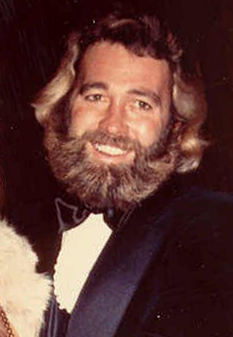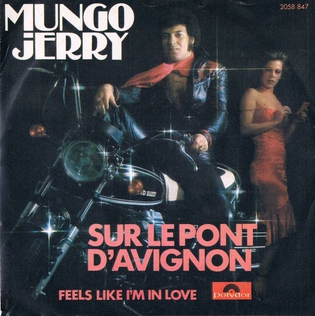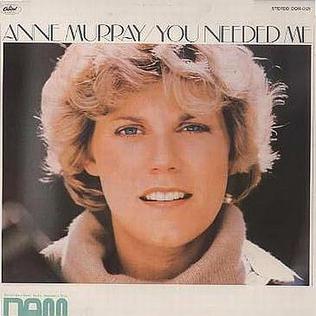Related Research Articles

"Lost in Love" is a song recorded by the British/Australian soft rock duo Air Supply. The song was written by group member Graham Russell. The original version of the song appeared on the Life Support album in 1979 and was released as a single in Australia, reaching number 13 on the Kent Music Report. The group re-recorded the song for the album of the same name in 1980 and this version was released as a single in the US, reaching number 3 on the Billboard Hot 100.

Daniel Francis Haggerty was an American actor who was best known for playing the title role in the film and television series The Life and Times of Grizzly Adams.

"Fame" is a song written by Michael Gore (music) and Dean Pitchford (lyrics) and released in 1980, that achieved chart success as the theme song to the Fame film and TV series. The song was performed by Irene Cara, who played the role of Coco Hernandez in the original film. It was also her debut single as a recording artist. The song won the Academy Award for Best Original Song in 1980, and the Golden Globe Award the same year. In 2004, it finished at number 51 on AFI's 100 Years...100 Songs survey of top tunes in American cinema.

"Suicide Is Painless" is a song written by Johnny Mandel (music) and Michael Altman (lyrics) for the 1970 film M*A*S*H. In addition to being performed by characters in the film, it plays during the title sequence as sung by The Ron Hicklin Singers. An instrumental version is likewise the theme music for the TV series based on the film, playing over the opening and closing credits.

The Life and Times of Grizzly Adams is a 1974 independent feature film produced by Charles E. Sellier Jr. and Raylan D. Jensen for Sunn Classic Pictures. The film's popularity led to an NBC television series of the same name. The title character, played by Dan Haggerty, was loosely based on California mountain man John "Grizzly" Adams (1812–1860).

"Bright Eyes" is a song written by British songwriter Mike Batt and performed by Art Garfunkel. It was written for the soundtrack of the 1978 British animated adventure drama film Watership Down. Rearranged as a pop song from its original form in the film, the track appears on British and European versions of Garfunkel's 1979 Fate for Breakfast and on the US versions of his 1981 album Scissors Cut. "Bright Eyes" topped the UK Singles Chart for six weeks and became Britain's biggest-selling single of 1979, selling over a million copies. Richard Adams, author of the original novel, is reported to have hated the song. A cover of the song was later used explicitly in the Watership Down television series as its theme song.

"The Rose" is a pop song written by Amanda McBroom. Bette Midler made the song famous when she recorded it for her 1979 film The Rose, in which it plays during the closing credits. It has been recorded multiple times, including by Conway Twitty and Westlife who had US Country & Western and UK number one hits with the song, respectively. Nana Mouskouri recorded a German version, also in 1980, as well as an English version.

"9 to 5" is a song written and recorded by American entertainer Dolly Parton for the 1980 comedy film of the same name. In addition to appearing on the film soundtrack, the song was the centerpiece of Parton's album 9 to 5 and Odd Jobs, released in late 1980. The song was released as a single in November 1980.

"Heaven" is a song by the Canadian singer and songwriter Bryan Adams recorded in 1983, written by Adams and Jim Vallance. It first appeared on the A Night in Heaven soundtrack album the same year and was later included on Adams' album Reckless in 1984. It was released as the third single from Reckless and reached number one on the U.S. Billboard Hot 100 in June 1985, over a year and a half after the song first appeared on record. The single was certified Gold in Canada in 1985.

"Flash" is a song by British rock band Queen. Written by guitarist Brian May, "Flash" is the theme song of the 1980 film Flash Gordon.

"I Have a Dream" is a song by Swedish pop group ABBA. It was released in December 1979 as the sixth and final single from the group's sixth studio album, Voulez-Vous. Anni-Frid Lyngstad sang lead vocals. It was a major hit, topping the charts in many countries and peaking at No. 2 in the UK over the Christmas week of 1979. Twenty years later, Irish pop group Westlife released a version that reached No. 1 in the UK over the Christmas week of 1999.

"Hard to Say I'm Sorry" is a 1982 power ballad by the group Chicago. It was written by bassist Peter Cetera, who also sang the lead vocals on the track, and producer David Foster. It was released on May 17, 1982, as the lead single from the album Chicago 16. On September 11 it reached No. 1 for two weeks on the Billboard Hot 100. It was the group's second No. 1 single. It was their first top 50 hit since "No Tell Lover" in 1978 and it spent twelve weeks in the top 5 of the Billboard Hot 100. The single was nominated for a Grammy Award for Best Pop Performance by a Duo or Group with Vocal, and was certified gold by the Recording Industry Association of America (RIAA) in September of the same year. Songwriter Cetera, a member of the American Society of Composers, Authors and Publishers (ASCAP), won an ASCAP Pop Music Award for the song in the category, Most Performed Songs.

"The Loco-Motion" is a 1962 pop song written by American songwriters Gerry Goffin and Carole King. "The Loco-Motion" was originally written for R&B singer Dee Dee Sharp, but Sharp turned the song down.

"Ghostbusters" is a song written by American musician Ray Parker Jr. as the theme to the film of the same name, and included on the film's soundtrack. Debuting at number 68 on June 16, 1984, the song peaked at No. 1 on the Billboard Hot 100 on August 11, staying there for three weeks, and at No. 2 on the UK Singles Chart on September 16, staying there for three weeks. The song reentered the UK Top 75 on November 2, 2008 at No. 49 and again on November 5, 2021, at No. 38.

"Feels Like I'm in Love" is a song written and recorded by Ray Dorset with his band Mungo Jerry. It was a number-one hit on the UK Singles Chart for two weeks in September 1980 for Scottish singer Kelly Marie.
"Wild One" or "Real Wild Child" is an Australian rock and roll song written by Johnny Greenan, Johnny O'Keefe, and Dave Owens. While most sources state that O'Keefe was directly involved in composing the song, this has been questioned by others. Sydney disc jockey Tony Withers was credited with helping to get radio airplay for the song but writer credits on subsequent versions often omit Withers, who later worked in the United Kingdom on pirate stations Radio Atlanta and, as Tony Windsor, on Radio London.

"You Needed Me" is a song written by Randy Goodrum, who describes it as being about "unconditional undeserved love". It was a number-one single in the United States in 1978 for Canadian singer Anne Murray, for which she won a Grammy Award. In 1999, Irish pop band Boyzone recorded a hit cover of the song that reached number one on the UK Singles Chart.

"Love Is in the Air" is a 1977 disco song by Australian singer John Paul Young. It was written by George Young and Harry Vanda, and released as the lead single from Young's fourth studio album, Love Is in the Air (1978). The song became a worldwide hit in 1978, peaking at No. 3 on the Australian charts and No. 5 on the UK Singles Chart. In the United States, it peaked at No. 7 on the pop chart and spent two weeks at No. 1 on the Adult Contemporary chart, his only U.S. top 40 hit. The song plays at 122 beats per minute, a typical 1970s disco rhythm. At the Australian 1978 King of Pop Awards, the song won Most Popular Australian Single. In 1992, a remix of the song was released and featured on the soundtrack to the Golden Globe-nominated film Strictly Ballroom. A new music video was also produced.

"Run to You" is a song by Canadian singer-songwriter Bryan Adams. It was released in 1984 as the lead single from his fourth album, Reckless (1984). The track deals with the subject of infidelity, and is sung from the perspective of a man who declares that he will continue to "run to" his seductive mistress over his faithful partner; critic Ira Robbins for CMJ called it a "cheating classic". In the accompanying music video, however, Adams portrays his guitar as the object of desire.
"Suddenly" is a duet performed by Olivia Newton-John and Cliff Richard from the soundtrack Xanadu, and is the love theme from the 1980 film of the same name. It was written and produced by John Farrar.
References
- ↑ "UK Singles Chart – Thom Pace". Official Charts Company. May 1, 1979. Retrieved June 21, 2014.
- ↑ Kent, David (1993). Australian Chart Book 1970–1992 (illustrated ed.). St Ives, N.S.W.: Australian Chart Book. p. 227. ISBN 0-646-11917-6.
- ↑ AllMusic